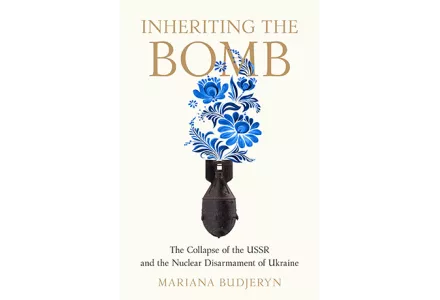Mariana Budjeryn, Ph.D. is a Senior Research Associate with the Project on Managing the Atom (MTA) at the Harvard Kennedy School’s Belfer Center. Formerly, she held appointments as a Stanton Nuclear Security Fellow with MTA, and the International Security Program, a fellow at Harvard's Davis Center for Russian and Eurasian Studies, and as a visiting professor at Tufts University and Peace Research Institute Frankfurt. Mariana’s research focuses on the international non-proliferation regime, arms control, nuclear crises, and post-Soviet nuclear history. Mariana leads MTA’s diversity, inclusion, and belonging program, including the Atomic Voices seminar series that provides a forum for marginalized voices and perspectives in the nuclear field. She is an affiliate of the Davis Center Negotiations Task Force, where she is one of the architects and organizers of ACONA (Arms Control Negotiations Academy), an immersive course in arms control history, technology, and negotiations skills.
Matthew Bunn, Ph.D. is a Professor of Practice at Harvard University’s John F. Kennedy School of Government. His research interests include nuclear theft and terrorism; nuclear proliferation and measures to control it; the future of nuclear energy and its fuel cycle; and policies to promote innovation in energy technologies. He is the faculty lead for the Project on Managing the Atom at the Belfer Center for Science and International Affairs.
Steven E. Miller, Ph.D. is Director of the International Security Program, Editor-in-Chief of the quarterly journal, International Security and also co-editor of the International Security Program's book series, Belfer Center Studies in International Security (which is published by the MIT Press). Previously, he was Senior Research Fellow at the Stockholm International Peace Research Institute (SIPRI) and taught Defense and Arms Control Studies in the Department of Political Science at the Massachusetts Institute of Technology. Miller is editor or co-editor of more than two dozen books, including, most recently, The Next Great War? The Roots of World War I and the Risk of U.S.-China Conflict.

